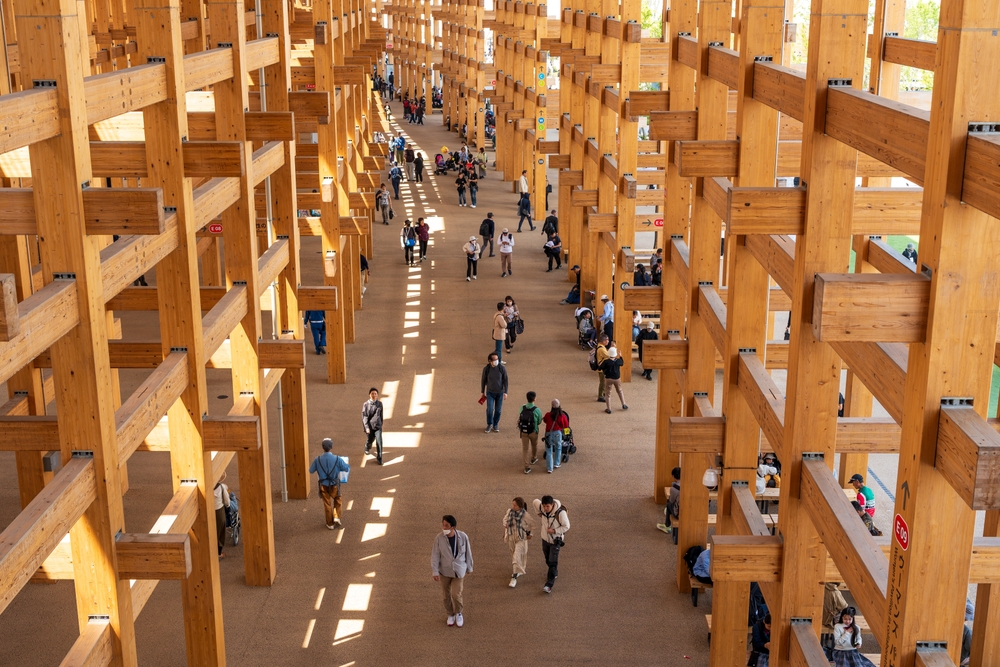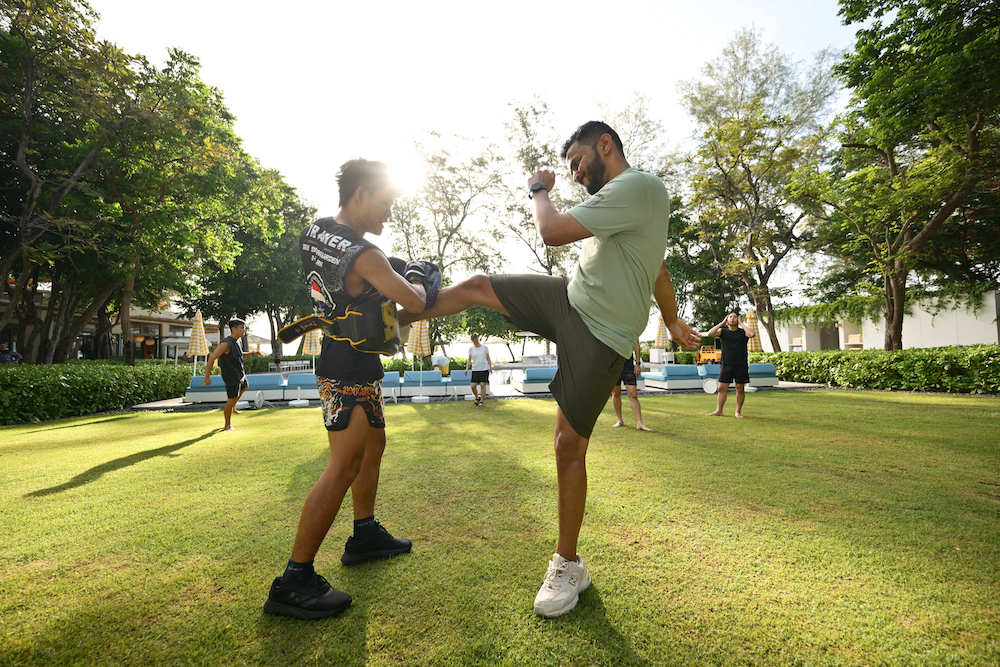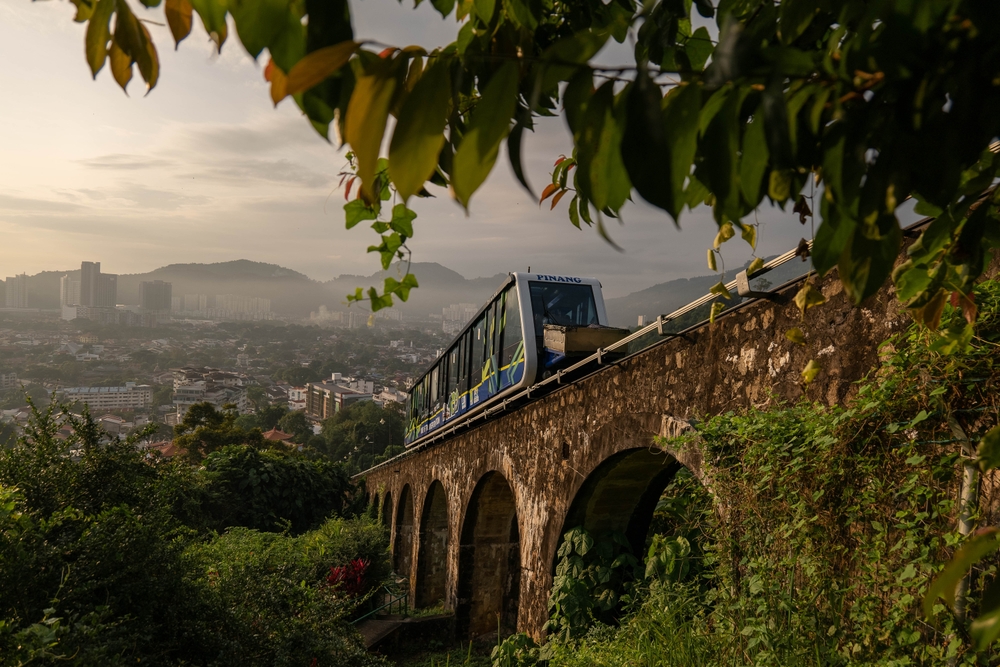It’s a place associated with saints and sinners. It has been a city of missionaries, revolutionaries, traders, smugglers, rogues and gamers.
Macau was one of the first meeting points of Europe and China nearly 500 years ago, and played an important role in the early trade chain that linked Europe, Asia and the Americas.
It’s changing role over the centuries is such that the destination does not fit neatly into a simple description or sound-bite.
Macau’s name is thought to be derived from the Chinese phrase A-Ma Gau, referring to the bay around the A-Ma Temple. This shrine existed even before Macau came into being and represents a fusion of different beliefs, Confucianist, Taoist and Buddhist.

This Chinese ability to blend, adapt and tolerate different philosophies become essential with the arrival of the Portuguese in the 1500s and accounts for one of the reasons why in Macau the cliché East-meets-West is not as hackneyed as it might sound elsewhere.
Macau was an important staging post for Catholic missionaries heading for Japan, where Portugal had established trade settlements. Persecution of Japanese Christians forced many of them to flee to Macau and their presence can be seen in some of the Japanese-style detail in the stonework of the Ruins of St Paul’s, Macau’s most famous landmark.
One of Macau’s oldest churches, St Joseph’s, is said to hold a bone relic from the Jesuit missionary St Francis Xavier, held in St Paul’s before fire destroyed the church in 1888, leaving only its façade.
Groups can easily fit in visits to a variety of Chinese temples and Catholic churches during their trip. If your group visits during one of the many religious festivals, then they may be lucky enough to witness colourful processions and ceremonies.
Macau was also home to the revered founder of modern China Dr Sun Yat Sen, who practised medicine in Macau and had strong family links there. There are a number of monuments and a Sun Yat Sen Memorial House in the city.
Culture, heritage and history are at every turn. But Macau of course is not all churches, temples and monuments. Ever since China resumed sovereignty over Macau from its previous Portuguese colonial administration in 1999, this once sleepy enclave has attracted worldwide attention for the scale of its hotel resort and casino developments.
Since gaming is illegal in Mainland China, the casino sector has naturally been the focus of most of the attention. Macau legalised gambling decades ago and its casino culture was already regionally famous.
However, with the entrance of US and Australian companies such as Crown, MGM, Sands, Wynn and Galaxy, the events sector has been seen as a natural area for growth and diversification going beyond the blackjack and roulette tables.
The initial talk of Macau as the “Las Vegas of Asia”, was sometimes superficially understood as solely gaming and entertainment.

This overlooked the fact that in Las Vegas itself the conference and exhibition sector has gradually displaced gambling as the main source of the US city’s income.
Nonetheless, while the buzz about Macau has focused on the casinos, the glittering entertainment options and the fabulous range of accommodation now available, the legacy of Macau’s culture is still a reason in itself for event organisers to consider this Special Administrative Region of China as an event destination.
Macau is attempting to promote this “best of both worlds” message to meeting planners.
On the one hand, groups can appreciate its Unesco-recognised heritage sites, and on the other some of the most sumptious, modern hotel suites and guestrooms in the world.
Bruno Simões, who is CEO of DOC DMC Macau, says: “Mainland China, Taiwan, Hong Kong, Korea and Singapore are among our major markets. However, we also have a large number of Indian groups coming to Macau now. This was the result of the highly successful Indian Film Awards being held here. This gained Macau a great deal of coverage and publicity in India.
“Most groups are staying for two or three nights and are at sales conferences in the large hotels in the Cotai Strip. So they really appreciate the chance to get downtown. Generally, we would organise a programme, like the Amazing Race, that would last for around three hours. Schedules are often tight and the group needs to move off for lunch or dinner fairly soon after.”
In addition to this accommodation range is the capacity offered by the mega-resorts of The Venetian Macao and its close neighbour the City of Dreams, which hosts a Grand Hyatt alongside the Crown Towers and a Hard Rock Hotel.
Wynn Macau’s new Encore property has added 414 luxury suites and villas. The Wynn’s Italian restaurant il Teatro can be used for small or large groups.
Adrianne Lynch of Hong Kong-based The DMC – The Destination Management Company has seen the territory transform.
“Despite the colossal development over the past decade mainly centred on the Cotai Strip, Macau still retains the charm of its mixed Chinese and Portuguese heritage. This makes it a quite unique spot in Asia.
“Since they are so close together, groups can experience Hong Kong and Macau in a single trip, especially as they usually arrive in Hong Kong first. This allows a contrast between the British-Chinese blend of Hong Kong and the quite different Portuguese influence on Macau. These are obvious in terms of food, architecture of the heritage buildings, street names and so on,” she says.
From being an events backwater, capable of holding small- to medium-size meetings, modest incentives and offering some teambuilding options, Macau is now in the big league. And it’s going to get bigger.
Steve Jacobs, vice-president of Sands China, which is behind the Cotai Strip project, has said that two sites on the Cotai Strip, which were put on hold during the height of the financial crisis, are now aiming to open through 2011 and 2012.
These will add several thousand extra rooms in the first phase as well as new meeting and function spaces. The sites will include a new 636-room Shangri-La, a 1,259-room Traders Hotel and a 4,067-room Sheraton Macau Hotel, which will become one of the world’s largest hotels when it is fully open.
Further developments in Macau will include hotels by Hilton, Conrad, Fairmont, Raffles and Swissôtel, alongside a major project involving InterContinental, Holiday Inn and Cosmopolitan hotels called the Phoenix.
Simões believes the new developments stimulate business and as they will be opened in rolling phases, this staggered expansion will match and not outstrip demand.
“Our hotel capacity doubled in just the past six years. We now have around 21,000 hotel rooms available for event organisers. The next opening will be the Galaxy with around 2,500 rooms so that will represent just over a 10 percent increase. When the new hotels on the Cotai Strip, such as the Sheraton, open they will also add another 15 percent. These are reasonable and manageable increases. The addition of good, quality integrated resorts is great for the destination.
“For example, when the City of Dreams opened, this really helped sell Macau since now there are two mega-resorts to choose from, the other being the Venetian.”
The DMC’s Lynch says: “The quality and the variety of hotels also makes Macau a very attractive destination these days for corporate groups. There are also nightlife options that simply didn’t exist before, we’ve taken groups to shows like The Phantom of the Opera and the Cirque du Soleil performances and they loved them.”

CASE STUDY
High stakes
The iGaming Asia Congress decided on a risky switch to a new venue in Macau, writes Don Gasper, but it paid off handsomely
Rosalind Wade, general manager of Hong Kong-based Beacon Events, found herself faced with a challenge last year. On behalf of British company Clarion, her firm had for three consecutive years organised the Asian iGaming conference in Macau for senior executives involved in the online gaming industry. The event was so successful, however, that the British company decided it wanted to go it alone with future conferences.
Beacon was determined to go ahead with an event of its own, which it renamed iGaming Asia. However, the previously booked Macau venue insisted on honouring its booking with Clarion and would not let Beacon have it.
Beacon could have dropped Macau as the location but felt that after three years people in the industry now recognised it as the place to meet. “They like coming to Macau – it’s a fun city,” says Wade.
Luckily, the Grand Hyatt was to open in the City of Dreams in September. Having used Hyatt facilities elsewhere, Beacon decided to check out its suitability as an alternative convention venue in Macau.
So in May 2009, it contacted the hotel, then still being built, and in June, Beacon executives went over to inspect it. “We had to go round in hard hats,” Wade recalls.
“It was nicely laid out with its two towers. The rooms were not as big as in the other venue, but they were classier.”
What they really liked was that for the congress they would have the whole area to themselves. Access to the meeting area was also easier from the bedrooms. In the other venue, there was a long walk between them.
So in September Beacon booked. The hotel was considerably more expensive than one Beacon had originally planned to use. However, a more favourable rate was agreed by guaranteeing a minimum number of guestrooms in advance.
The event took 12 weeks to organise, from starting research to mailing out the brochures.
Beacon had originally booked the first week in March at the other venue, because the Lunar New Year fell in late February in 2010. It therefore assumed, after its arrangement with Clarion was terminated, that the British company had taken over that date. For this reason, it decided to book the last week in February at the Grand Hyatt. As it turned out, however, Clarion decided to switch the venue of its event to Manila and to hold it in the second week of March.
There was an extensive programme, including two parallel pre-Congress workshops held in salons III and VI. The congress itself, which was held in a section of the Grand Ballroom, had two different tracks. There was also an exhibition, supported by three sponsors. It was held in a partitioned 1,200sqm section of the ballroom, where there were 14 booths organised by 10 companies, making it the largest dedicated i-gaming exhibition in Asia, based on the number of stands.
As for delegate numbers, a total of 247 people attended, up on the 220 who had come to the previous event in 2009. They included representatives of 138 companies from 25 countries and regions. Just under 30 percent of those attending were from i-gaming operators. This was not at all bad, considering Beacon was “effectively splitting the market in two” by competing with Clarion.
Of those attending, 67 percent were from the Asia-Pacific region, a 10 percent increase on the previous year. In addition, more of the 60 keynote speakers were Asian this time. Wade attributed the stronger Asian presence to the work done on building Beacon’s database.
There was a cocktail reception on the opening night and pre-registration drinks the evening before. In addition, there was the congress “Shanghai Nights” party, themed around 1930s Shanghai. For this, a Filipino band was hired, along with female dancers from Macau.
“We normally go to another place for our evening entertainment but as there was a minimum food and beverage charge to use up, we decided to hold our party in the same location as the congress itself,” says Wade.
“There are always hairy moments with iGA,” she adds. “The main problem was speakers dropping out or just not showing up.”
But even on the last day, people were talking right up to 6pm – “the hallmark of a good event”.
FAST FACTS
ACCESS
Air access into Macau has increased significantly in the past few years. Aside from local carrier Air Macau, other airlines such as AirAsia, EVA Air, Philippine Airlines and Tiger Airways provide Macau with air links to the rest of the world.
However, most people come into the territory via Hong Kong by ferry. Groups arriving from abroad can now bypass Hong Kong immigration with a direct ferry transfer from the airport at Chek Lap Kok. The journey takes an hour. Groups from China’s southern province of Guangdong can take a ferry from Shenzhen or a bus from Guangzhou. Travel time is 80 minutes and 60 minutes respectively.
CLIMATE
Macau has four seasons. Weather is most comfortable in autumn between middle of October and December. Summer between May and September is marked by occasional heavy rains and thunderstorms.
VISA
Citizens of some countries do not need a visa. Visa on arrival is available for those who need one. For visa requirements and other information, check Macau Government Tourist Office website at www.macautourism.gov.mo
LANGUAGE
Chinese and Portuguese are the official languages. Cantonese is widely spoken. English is the lingua franca for business.
ENQUIRIES
INSIDER VERDICT
Bruno Simões, CEO, DOC DMC Macau
“At the moment, it is almost impossible to hire the great heritage sites for private companies for things like cocktails and receptions. However, the government will give permission for events that have a link with local not-for-profit bodies such as associations and government festivals.
“Very recently, the Macau government has established a tourism task force to study the possibility of having private events at many of the sites, so there should be a lot more openness.
“But we use the heritage sites a lot in other ways. Our most popular package is an Amazing Race, for example, that involves taking groups up to a few hundred strong on a rapid tour around the historic centre of downtown Macau. They follow a route by solving clues.
“We can do other things, of course, such as tai chi at the Mount Fortress and various forms of teambuilding activities.
“One lovely historic part of Macau is the Taipa Houses. Here you can do open-air cocktail evenings. The downside though is that if there is bad weather, there isn’t a suitable alternative venue.”
THE PROFESSIONALS
DOC DMC
email: bsimoes@doc-dmc-macau.com
www.doc-dmc-macau.com
OFF-SITE CONNECTIONS
email: info@offsiteconnections.com
SMALLWORLD EXPERIENCE
email: raulazevedo@smallworldexperience.com


